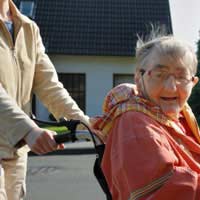Pensions and Carers

Eligibility for a basic state pension is built up through your payment of National Insurance Contributions. You need to build up enough ‘qualifying years’ before you retire in order to receive a Basic State Pension. A qualifying year is a year when you have earned enough to pay National Insurance Contributions. In order to qualify for a Basic State Pension men need 44 qualifying years and women need 39.
If you are a carer, for a child or relative for example, you might not have enough qualifying years for a state pension. However, there are schemes in place to protect the pensions of parents and carers. You may be able to claim the Additional State Pension or Home Responsibilities Protection.
Additional State Pension
The Additional State Pension is paid on top of the Basic State Pension and benefits a range of people including carers, disabled people and those on low incomes.In order to pay National Insurance you need to be earning at least £4,524 per year currently. If you earn less than this, or have certain reasons for not working you can still build up entitlement to an Additional State Pension. You can do this if:
- You look after a child under 16, who you receive Child Benefit for.
- You are a carer and eligible for Home Responsibilities Protection (see below).
- You are eligible for Carers’ Allowance.
The Additional State Pension used to be called State Earnings Related Pension Scheme (SERPS) and changed in 2002, so you may receive a combination of SERPS and Additional State Pension when the time comes to draw your pension. SERPS was replaced by the additional state pension to allow for those who weren’t able to work such as parents and carers.
You can request a forecast of the pension you are predicted from the Pensions Service.
Home Responsibilities Protection
Home Responsibilities Protection (HRP) is a scheme designed to protect your State Pension if you are not paying National Insurance Contributions because you are a parent or carer.Some people will qualify automatically for Home Responsibilities Protection. For example:
- If you are claiming Child Benefit for a child under 16.
- If you are claiming Income Support because you are a carer.
You won’t be eligible for HRP if you receive carers’ allowance as you should automatically get National Insurance credits.
If you’re not receiving HRP but think you should be, you can apply if you meet the following requirements:
- You spend over 35 hours a week caring for someone in receipt of Disability Living Allowance.
- You are a foster carer and not earning enough per year for a State Pension.
HRP basically works by reducing the number of qualifying years you need to claim a state pension, to a minimum of 20 years.
To claim HRP you need to fill in a CF411 form, available on the HMRC website or from your local Jobcentre Plus office.
The future
The Pensions Act 2007 will mean some further changes to the State Pension system. As of 6 April 2010, HRP will be replaced and more people who are not paying National Insurance Contributions will be able to build up entitlement to Basic State Pension and Additional State Pension through the introduction of a weekly National Insurance credit.These people will include:
- Those receiving Child Benefit for a child under 12.
- Foster carers.
- Carers who look after someone for more than 20 hours per week.
More details of the scheme are expected to be released closer to 2010.
- A Guide to Employing a Carer
- Q & A: Long Term Care
- Coping With the Stress of Caring for a Disabled Spouse
- Visual Impairment: Know Your Rights
- Going Into Sheltered Housing
- Employing a Carer
- Respite Assistance Availability and Funding
- Paying for Care Assistance
- Carers & Council Tax
- Help for the Families of Disabled Children
- Financial Help for Carers
- Claiming Disability Living Allowance For Your Child
The Act Foundation
Autism.org


Re: Disabled: Can I Claim Funding for a Cooker?
Kak esehiko sminor k112 fundingcaring.co.uk
Re: Coping With the Stress of Caring for a Disabled Spouse
My husband has declined so quickly that he needs handicapped parking now and he was mowing the…
Re: Coping With the Stress of Caring for a Disabled Spouse
I'm recently disabled due to a neurological disorder and I have been deteriorating rather…
Re: Coping With the Stress of Caring for a Disabled Spouse
We are all here for the same reason. Why does life have to be this way. It’s sad. I wish things…
Re: Disabled: Can I Claim Funding for a Cooker?
Hi. I’m disabled with bad back knees and hips and carpal tunnel in both hands. I also have fibromyalgia. I was…
Re: Coping With the Stress of Caring for a Disabled Spouse
I have been married to my wife for 31 years. Beginning of our relationship was very volatile at…
Re: Coping With the Stress of Caring for a Disabled Spouse
We have been married for 40 years. I retired in 2019 looking forward to spending time enjoying…
Re: Coping With the Stress of Caring for a Disabled Spouse
My husband was diagnosed with ms 8 years ago his mobility has gone really bad to the extent that…
Re: Coping With the Stress of Caring for a Disabled Spouse
I thought I was getting down and desperate. My husband has had an illness for 20 yrs. now, but…
Re: Disabled: Can I Claim Funding for a Cooker?
Hi I’ve been moved into a wheelchair Bungalow which is fine But I need an Electric Hob and a Slide & Hide…